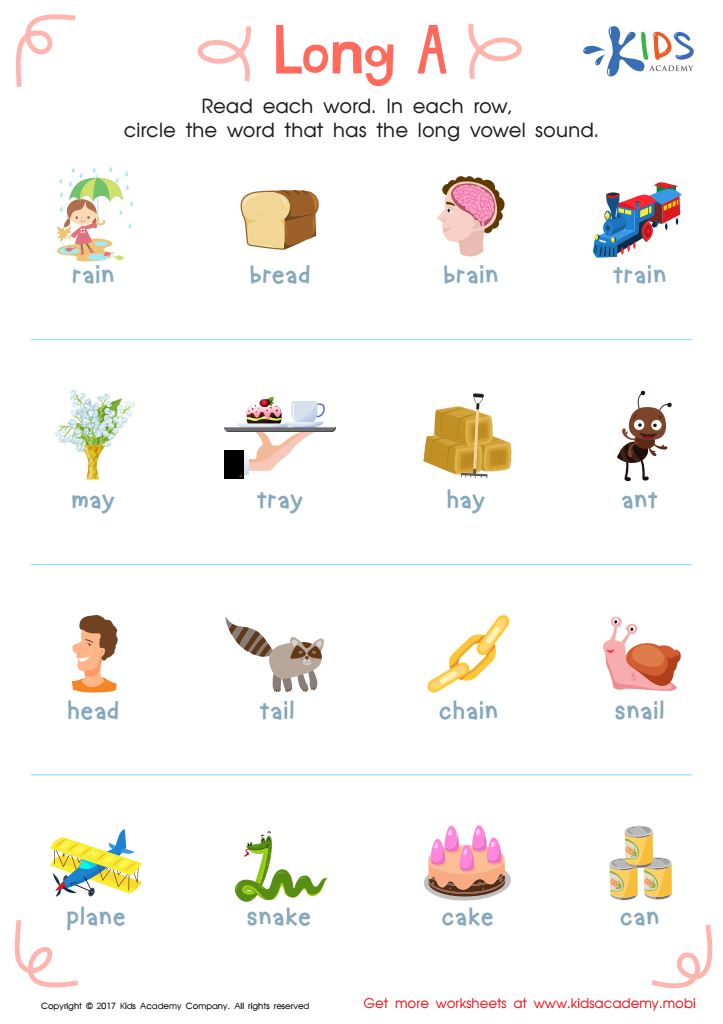Phonics improvement Alphabet Worksheets for Ages 4-9
6 filtered results
-
From - To
Boost your child's reading skills with our Phonics Improvement Alphabet Worksheets designed for ages 4-9. These engaging and educational worksheets provide a fun and effective way to enhance phonics abilities. Children will develop their understanding of letter sounds, blends, and word formation through various interactive activities. Ideal for young learners, these worksheets foster a love for reading while building essential language skills. Perfect for both classroom and home use, our phonics improvement worksheets are a valuable resource for parents and teachers aiming to support children on their journey to literacy. Unlock your child's potential today!
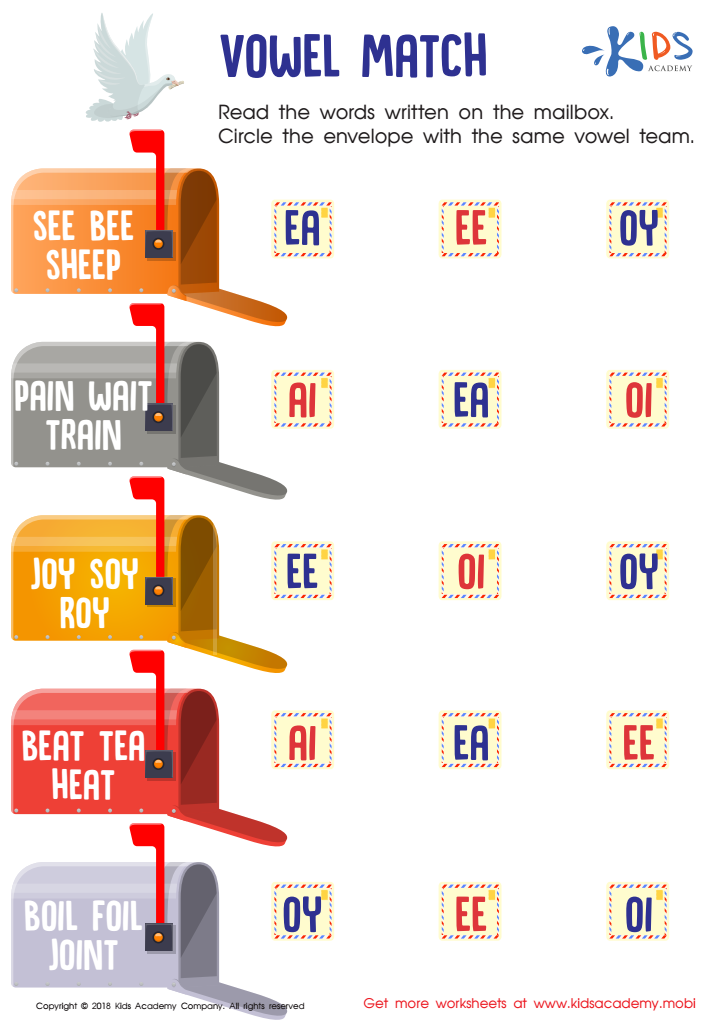

Vowel match Worksheet
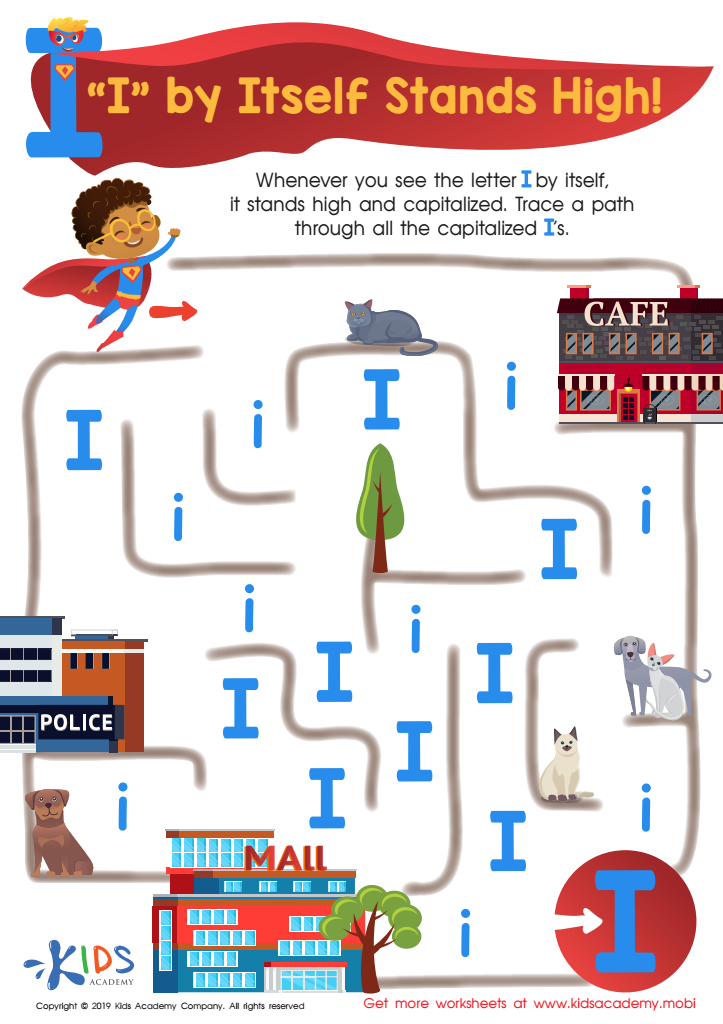

I Stands High Worksheet
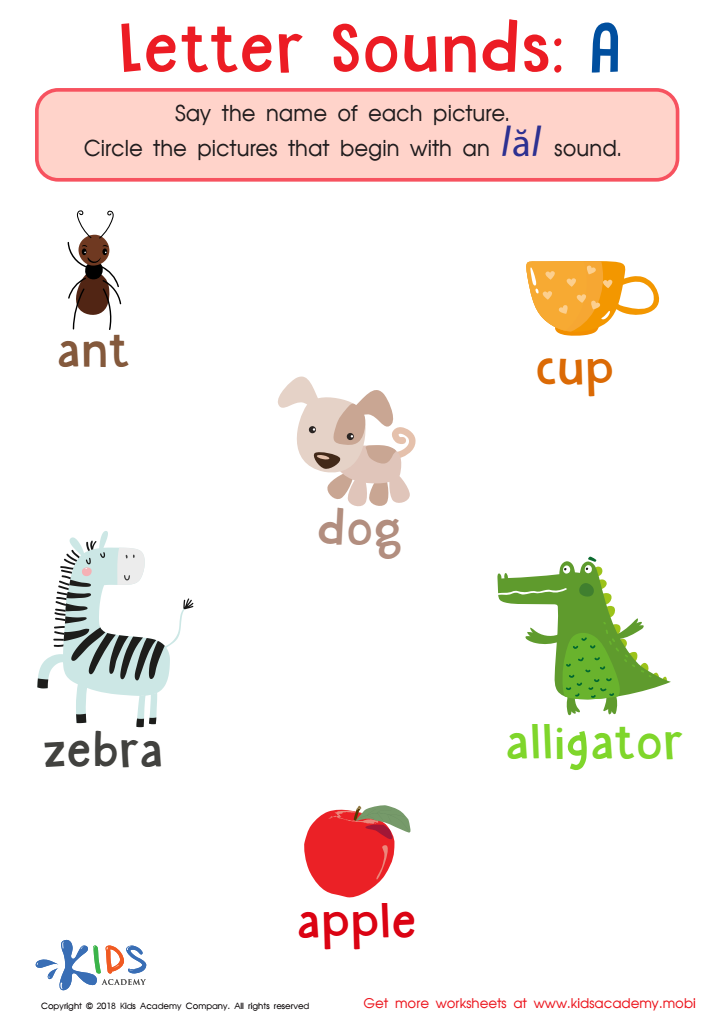

Letter A Sounds Worksheet
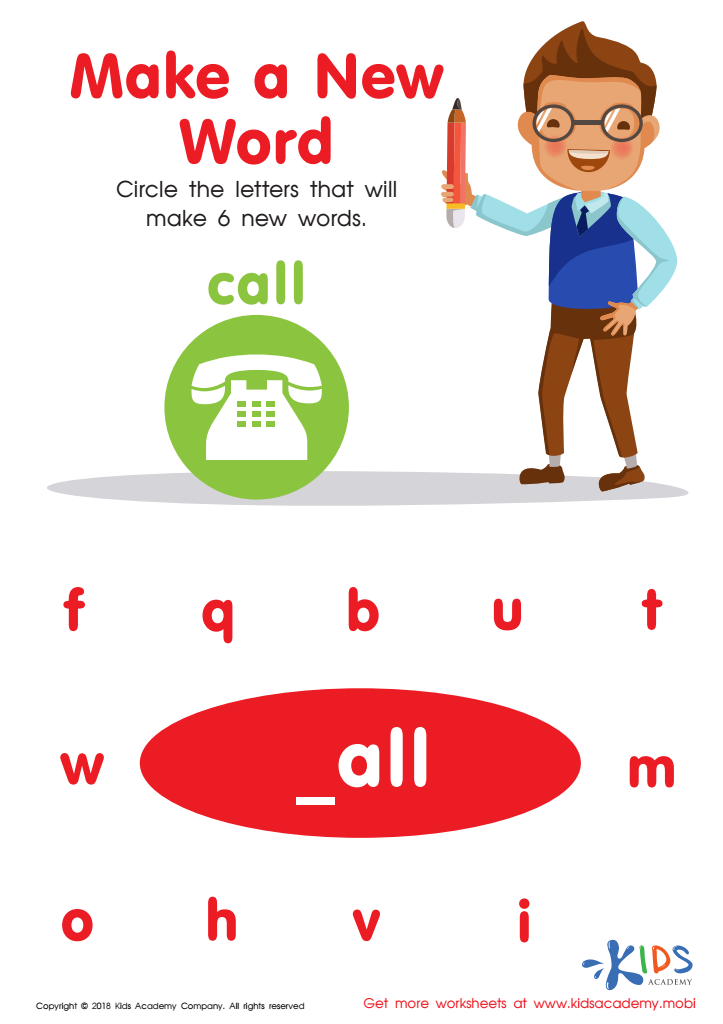

Make a New Word Worksheet
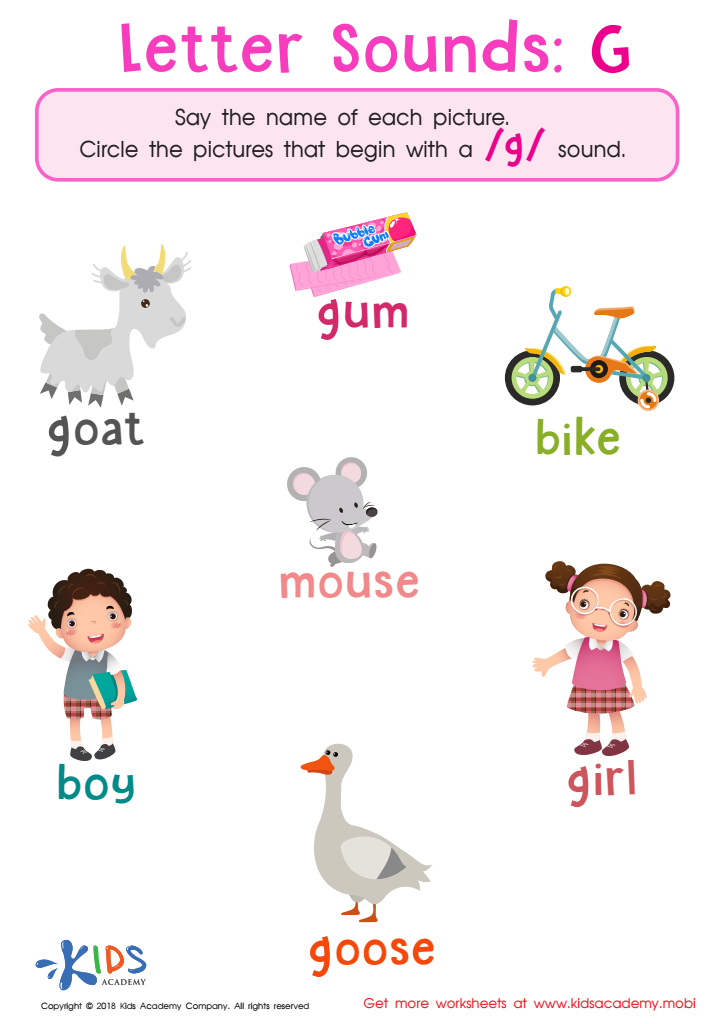

Letter G Sounds Worksheet
Phonics improvement is crucial for children ages 4-9, as it lays the foundational skills needed for successful reading and literacy development. Phonics involves the relationship between sounds and their corresponding letters or groups of letters. When children understand these connections, they can decode new words by sounding them out, which is essential for fluent reading.
For parents, investing time and effort in phonics helps ensure their child’s academic success. Early proficiency in reading helps children understand and engage with a wider range of subjects, ultimately leading to better performance in school. Strong phonics skills can also boost children’s confidence in their abilities, fostering a positive attitude towards learning.
Teachers benefit from focusing on phonics because it provides a structured approach to reading instruction. Phonics improvement targets critical early literacy skills, making it easier to identify and support students who might struggle with reading. This early intervention can prevent future academic difficulties, as reading is foundational for all other learning.
Additionally, phonics improvement supports language development and communication skills, enhancing children’s ability to understand and comprehend diverse texts. Effectively teaching phonics to young children sets the stage for lifelong learning and literacy, making it a vital component of early childhood education. In essence, phonics is the key to unlocking a child's potential as a reader, learner, and thinker.

 Assign to My Students
Assign to My Students

